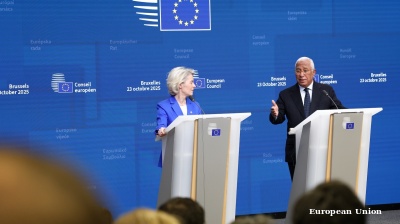US company ContourGlobal announced its decision on March 17 to cancel the 500 MW Kosova e Re coal-fired power plant project in Kosovo, which was estimated to cost €1.3bn.
The project would have been the largest-ever energy investment in Kosovo and was intended to stabilise the country’s energy supply and to boost economic growth. However, it has been heavily criticised by environmental groups.
The deal with ContourGlobal, which has 4.8 GW of capacity across 21 countries, was signed in 2017 with the previous government led by ex-PM Ramush Haradinaj, who resigned in July 2019 to appear at the Hague-based court investigating war crimes committed during Kosovo’s war of independence.
Kosovo’s new government led by Albin Kurti, whose party Vetevendosje pledged to stop the ContourGlobal project in Kosovo, took office in February.
“As a result of the political situation in Kosovo since July, our development project is incapable of reaching its required milestones by the required project completion date in May 2020 so the project cannot proceed,” ContourGlobal said in a statement, adding that it will not invest in the coal project anymore.
The company had previously said it would go ahead with the project, despite a 2018 decision by the World Bank not to financially support it, as the international development bank shifts its focus towards renewable energy project.
The new Kosovo e Re power plant was to have replaced the outdated Kosova A thermal power plant, one of the largest polluters in Europe. The new power plant was also expected to improve the power supply in Kosovo and to promote the country's economic development. Haradinaj forecast in January 2019 that Kosovo's economic growth would reach 7% partly as a result of the investment.
However, the plans to build the major new coal power station were increasingly at odds with the pressure on Kosovo and other Western Balkan countries to reduce their dependence on coal power as they sought greater integration with the European Union.
A 2019 report from the Energy Community revealed that Kosovo, along with Bosnia & Herzegovina and Serbia paid nearly three times more in subsidies to coal-fired power plants in 2015-2017 than to producers of energy from renewable sources.
In May 2019, five environmental groups filed a complaint with the Energy Community against the legality of the electricity purchase agreement for Kosova e Re. The complaint said the power purchase deal would damage the Kosovan budget and will lead to higher electricity costs for consumers.
The reliance on coal is also a major contributor to the air pollution that plagues Kosovo’s capital Pristina and other cities in the region. Air pollution is responsible for up to one in five premature deaths — or the deaths of almost 5,000 people — in 19 Western Balkan cities, according to a study led by UN Environment, published in 2019. On average, people lose up to 1.3 years of life to air pollution in the Western Balkans, where levels of particulate matter can be over five times higher than the World Health Organisation (WHO) guidelines.
The Balkan Green Foundation which had campaigned against the project wrote on its Facebook page” Now #Kosovo has the opportunity to build a sustainable #energy future! This is a not simple victory of our efforts, but the victory of the future of the energy sector and to increase public interest in general.”
Kosovo’s new government plans to examine alternative ways of boosting energy security, Kurti and other senior officials said at a meeting with the Energy Community secretariat earlier this month.
News

Palestinian ambassador pledges Iraqi embassy in Jerusalem
Palestinian ambassador pledges to open Iraqi embassy in Jerusalem as Iraq lays foundation stone for Palestinian ambassador's residence in Baghdad's new diplomatic quarter covering 300 hectares.

EU pledges ongoing support for Ukraine, defers decision on Russian assets
European Union leaders pledged continued financial backing for Ukraine over the next two years, but delayed a decision on tapping billions of euros in frozen Russian assets to fund Kyiv’s defence

Trump Administration striving to strike critical minerals deal with Kazakhstan
Pushing for US firm to win rights to develop major tungsten deposits.





